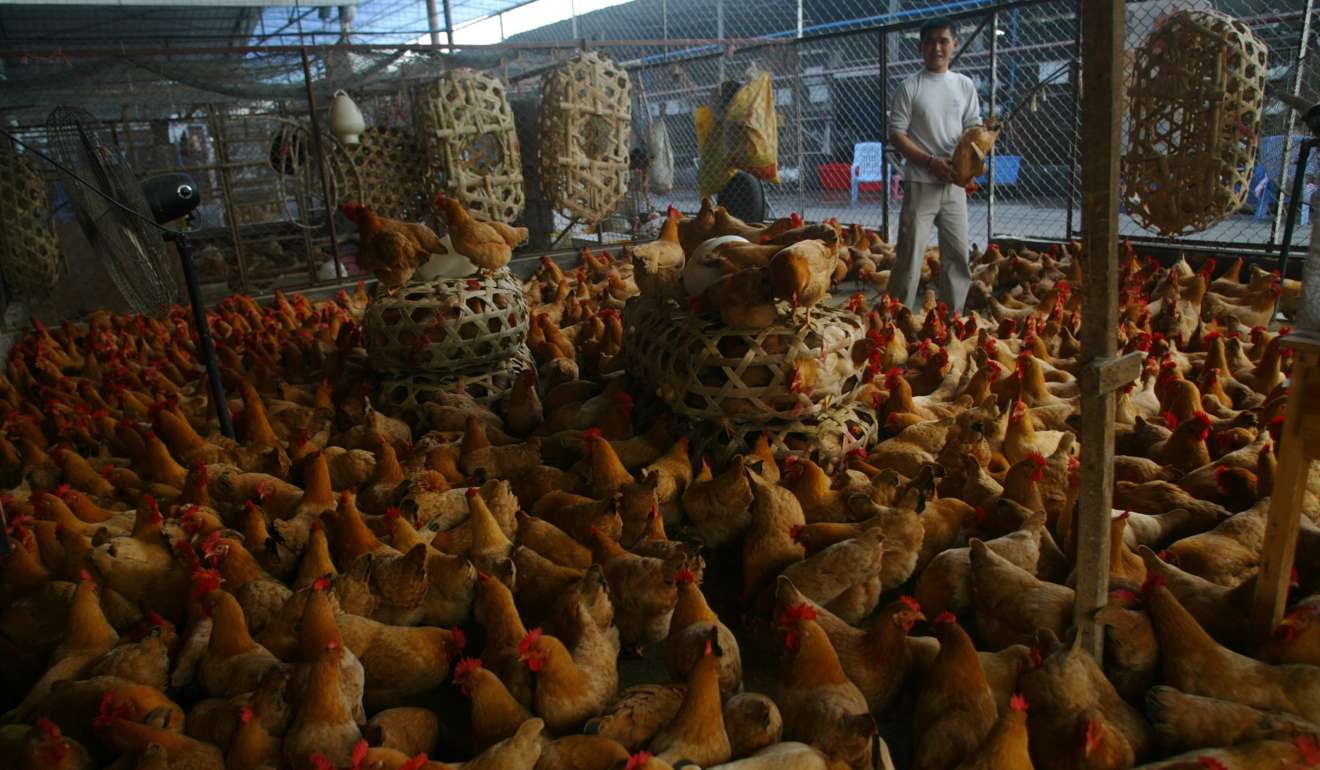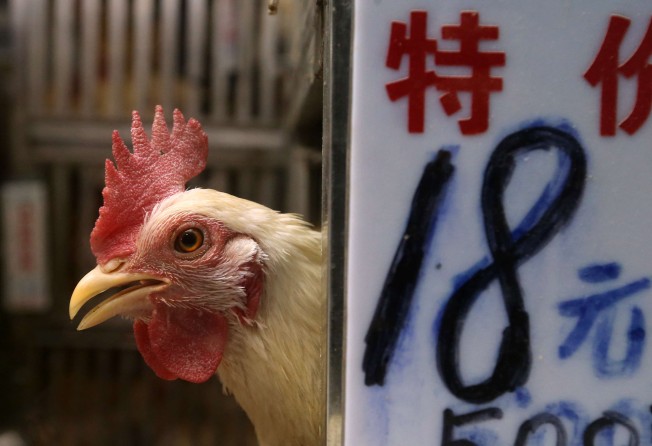
China’s Guangzhou has third of live poultry markets contaminated with bird flu, survey finds
Municipal officials have warned residents to avoid contact with live poultry

Guangzhou officials have advised residents to avoid contact with live poultry after one-third of poultry markets in China’s third-largest city were found to be contaminated with H7N9 bird flu.
The warning was given on Thursday after the Guangzhou Centre for Disease Control and Prevention found in its latest weekly sample assessment that more than 30 per cent of local live poultry markets were contaminated with the H7N9 avian flu virus.
Live poultry markets are a major source of human infection, as previous cases indicate.
The result fans fears of a wider spread as the city, which has a population of 17 million people, is a major transportation hub for migrant workers, many of whom are now returning to Guangdong province from their hometowns after the Lunar New Year holiday.
Guangzhou announced last month that it would halt live poultry trading in all markets three days a month in the first quarter of the year.

The city has had 35 people diagnosed with the virus in the past three years, more than half of whom died, Zhang Zhoubin, the deputy director of the municipal disease control centre, told local media.
Winter and spring are usually the peak seasons for humans to contract bird flu, requiring the culling of live poultry and closure of markets to contain its spread.
The China Centre for Disease Control and Prevention warned last month that the peak season for bird flu would occur one month earlier this year, and it expected to see a larger number of cases and a wider region of infection than in previous years.
The Centre for Health Protection of the Department of Health in Hong Kong on Friday received notification from its mainland counterpart that 45 new human cases of H7N9 bird flu had been recorded from January 30 to February 5, with four of those in Guangdong province.
State-run China Daily reported on Saturday that more than 130 cases of bird flu were reported in January, without providing a source, resulting in 24 deaths.
No human-to-human transmissions have been confirmed.
In a notice released earlier this week, the National Health and Family Planning Commission ordered timely screening and treatment of avian flu patients and published treatment standards online.
The Hong Kong government slaughtered more than 1.3 million birds from November to December 1997 after an outbreak of bird flu in the city.
Dr Ho Pak-leung, a microbiologist at the University of Hong Kong, said: “As far as Hong Kong is concerned, what is most important is for the policy not to import live mainland poultry to remain in place.”
Additional reporting from Stuart Lau